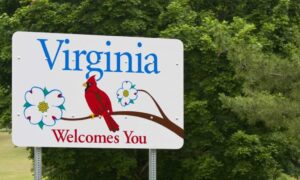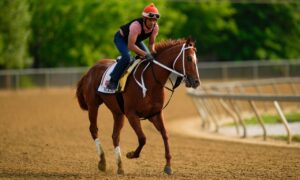
State officials have taken several measures to promote responsible gaming ever since Virginia commenced its gambling expansion plan last year.
The only form of gambling available to Virginians before the state’s online sports betting launch in January 2021 was the state lottery.
Currently, individuals have the opportunity to place bets on any sports event except for those involving Virginia colleges. Moreover, by the conclusion of 2025, there will be four Las Vegas-style casinos established in Old Dominion.
Virginia is determined to minimize the number of problem gamblers, recognizing that even a small percentage of the state’s 8.5 million population can have devastating consequences on countless lives.
Defining problem gambling
To begin with, it is important to acknowledge that problem gambling is essentially a type of addiction. It involves individuals who struggle to manage their urge to gamble and end up betting more than they can afford.
In contrast, responsible gaming entails individuals who adhere to their financial limits and place bets only with the amount they can comfortably forfeit.
The Mayo Clinic has provided a list of problem gambling behaviors for you to look out for.
- Constantly consumed by thoughts of gambling, such as consistently strategizing ways to acquire additional funds for gambling purposes.
- Having an urge to wager larger sums of money in order to experience the same level of excitement.
- Attempting to manage, reduce, or cease gambling, but facing continued failure.
- When attempting to reduce gambling, experiencing restlessness or irritability.
- Using gambling as a means to evade problems or alleviate emotions of helplessness, guilt, anxiety, or depression.
- Attempting to recoup lost funds through increased gambling.
- Deceiving family members or others in order to conceal the true scope of your gambling activities.
- Gambling has the potential to jeopardize or forfeit significant relationships, employment, as well as educational or professional prospects.
Certain risk factors that may increase the likelihood of someone becoming a problem gambler were also outlined by the Mayo Clinic.
Younger and middle-aged individuals, particularly men, are more frequently affected by this condition. It is also prevalent among individuals with mental health issues or substance abuse disorders.
March has been designated as Problem Gambling Awareness Month by the National Council on Problem Gambling, primarily due to the increased gambling activities observed during the NCAA Men’s Basketball Tournament, which commences in March.
Keith Whyte, the Executive Director of the NCPG, expressed:
During March Madness, there is a surge in gambling activities and a higher demand for our services. Unfortunately, many individuals fail to acknowledge the signs of addictive behavior and remain unaware of the assistance accessible to them.
Virginia’s responsible gaming measures
The self-exclusion program is a crucial measure implemented in Virginia to address problem gambling. Regulated by the Virginia Lottery, this initiative enables gamblers to voluntarily add their name to a list, effectively prohibiting them from participating in any gambling activities for a specified duration.
Residents of Virginia have the option to exclude themselves from gambling activities for either a two-year, five-year, or indefinite period. Once included on the exclusion list, one cannot be removed until the designated time has elapsed. The state’s regulators are responsible for managing this list, and gambling operators are strictly forbidden from engaging with anyone on it.
Additionally, individuals included in the list will be exempted from receiving any promotional mailings specifically tailored by gambling companies.
According to Virginia law, targeted mailing refers to sending advertisements or promotional offers to individuals based on specific criteria. Regular gamblers often receive incentives like comps or free play to encourage continued gambling. However, individuals on the list will not receive these perks.
Currently in Virginia, enforcing the self-exclusion list in the gambling industry is a fairly straightforward process. Online operators have the ability to verify accounts in advance, enabling them to easily block access for individuals included on the list.
On the other hand, the verification process becomes more challenging in states where physical casinos are present.
Easy access to help
In addition to the self-exclusion list, the Virginia Lottery offers assistance to gamblers by connecting them with counselors who specialize in addiction treatment.
In order to provide assistance to individuals struggling with gambling addiction, Virginia has established a problem gambling hotline. By dialing 1-888-532-3500, individuals who suspect they may have a gambling addiction can directly connect with a counselor who will be able to discuss their situation and offer support.
Seeking guidance from a professional enables individuals to gain insights into the underlying conflicts and psychological implications behind their gambling habits. By comprehending the reasons for engaging in self-destructive behavior, they can take significant steps towards addressing and mitigating the issue.
On the website, there is also a link to Gamblers Anonymous, the most renowned support group for individuals struggling with compulsive gambling worldwide.
GA operates on a system akin to Alcoholics Anonymous, fostering an environment where individuals facing similar challenges and experiences gather to share their stories. This sense of community allows individuals to seek solace in the knowledge that they are not alone in their struggles, ultimately aiding their journey towards overcoming addiction and abstaining from gambling.
GA meetings are held throughout the country, and you can easily locate a nearby meeting by searching the website of GA.






